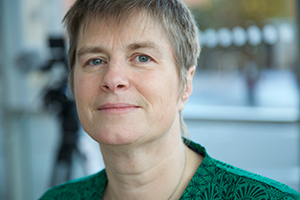How I learned to love Twitter as an academic

Posted by, Professor Jenny Kitzinger
I had meant to just lurk – to observe the weird world of Twitter from a safe distance – but I’ve become an enthusiast.
Although Twitter can be a place of trivia or bullying – a ‘dangerous playground’ – it can also be a vitally important tool for researchers.
My tweeting (@JennyKitzinger) covers qualitative research methods and a range of media studies, communication, health and social issues. I’ll focus here on just one example – tweeting about work exploring the role of ‘Advance Decisions’ (sometimes known as ‘Living Wills’).
‘Advance Decisions’ can be a useful tool to protect peoples’ choices about medical intervention after their capacity to make decisions has been lost (e.g. due to a catastrophic stroke). They are one response to widespread concern about the power of medicine to extend life in ways that sometimes only extend suffering – think Atul Gawande’s wonderful book ‘Being Mortal’.
Our research on Advance Decisions found that the general public and health care professionals often don’t understand them. People sometimes believe (incorrectly in the UK) that their ‘next of kin’ can refuse treatment on their behalf. Alternatively they think Advance Decisions are only ‘for the dying’ or that they have to be written by a lawyer. (Whereas actually it is easy to record your wishes in a legally-binding form via online resources such as mydecisions.org.uk).
We didn’t just analyse academic research for this work, we conducted face-to-face consultation with stakeholders and it was also useful to debate some of the issues on-line. For example, a discussion on Twitter about DNACPR [Do Not Attempt Cardiopulmonary Resuscitation] can involve a variety of people ranging from philosophers to disability rights activists and including paramedics, care home workers, lawyers and expert patients (or their families).
Such dialogue refined how we presented our review of the published literature and helped to frame our policy recommendations. Further discussion was prompted after the report was published encouraged by blog commentaries from a leading GP and barrister, mass media coverage and responses on Twitter.
Just before I was due to contribute to a ‘Woman’s Hour’ debate the presenter, Jenni Murray, asked me to help her write her own Advance Decision. She subsequently announced live on air that we’d done this, and also tweeted about it. The fact that Jenni Murray had written her Advance Decision powerfully conveyed the message that this wasn’t just for people with a terminal diagnosis.
Visits to the ‘mydecisions’ on-line resource increased three-fold the day of the ‘Woman’s Hour’ broadcast and the scene was also set for other tweeting. A prominent women’s rights activist tweeted that she had written her Advance Decision – explicitly making the link with the history of campaigning for women’s control over their own bodies. A friend of mine who was about to sail to Antarctica announced on Twitter that she was giving her Advance Decision to her GP before setting off on her epic voyage.
 Serendipitously, this tweet was spotted by a palliative care consultant at a conference about advance care planning. She quickly added an image of the tweet to her powerpoint presentation – and invited conference attendees to discuss how they would respond to one of their patients turning up with an Advance Decision like this.
Serendipitously, this tweet was spotted by a palliative care consultant at a conference about advance care planning. She quickly added an image of the tweet to her powerpoint presentation – and invited conference attendees to discuss how they would respond to one of their patients turning up with an Advance Decision like this.
Through Twitter our report became more than a record of research or a set of recommendations, it actually became an intervention into public debate. Twitter discussion challenged cultural silences and misinformation about the subject, highlighted that you don’t need to be dying to want an Advance Decision, and invited relevant professionals to take the issue on board.
In my experience then Twitter can be a wonderful social media platform – supporting networking across different sectors, providing insight into diverse perspectives, and prompting debate about research as it relates to unfolding events.
A final advantage is that I have recently started to bump into twitter-friends at conferences. It’s lovely to meet them in ‘the flesh’ – and talk over a cup of coffee, at length, in sentences much longer than 140 characters.
I now encourage my PhD students to establish a professional Twitter account from the outset of their studies. The following pages have proved helpful.
- Why you should use Twitter during your PhD
- A PhD student guide to Twitter
- 10 Commandments of Twitter for Academics


